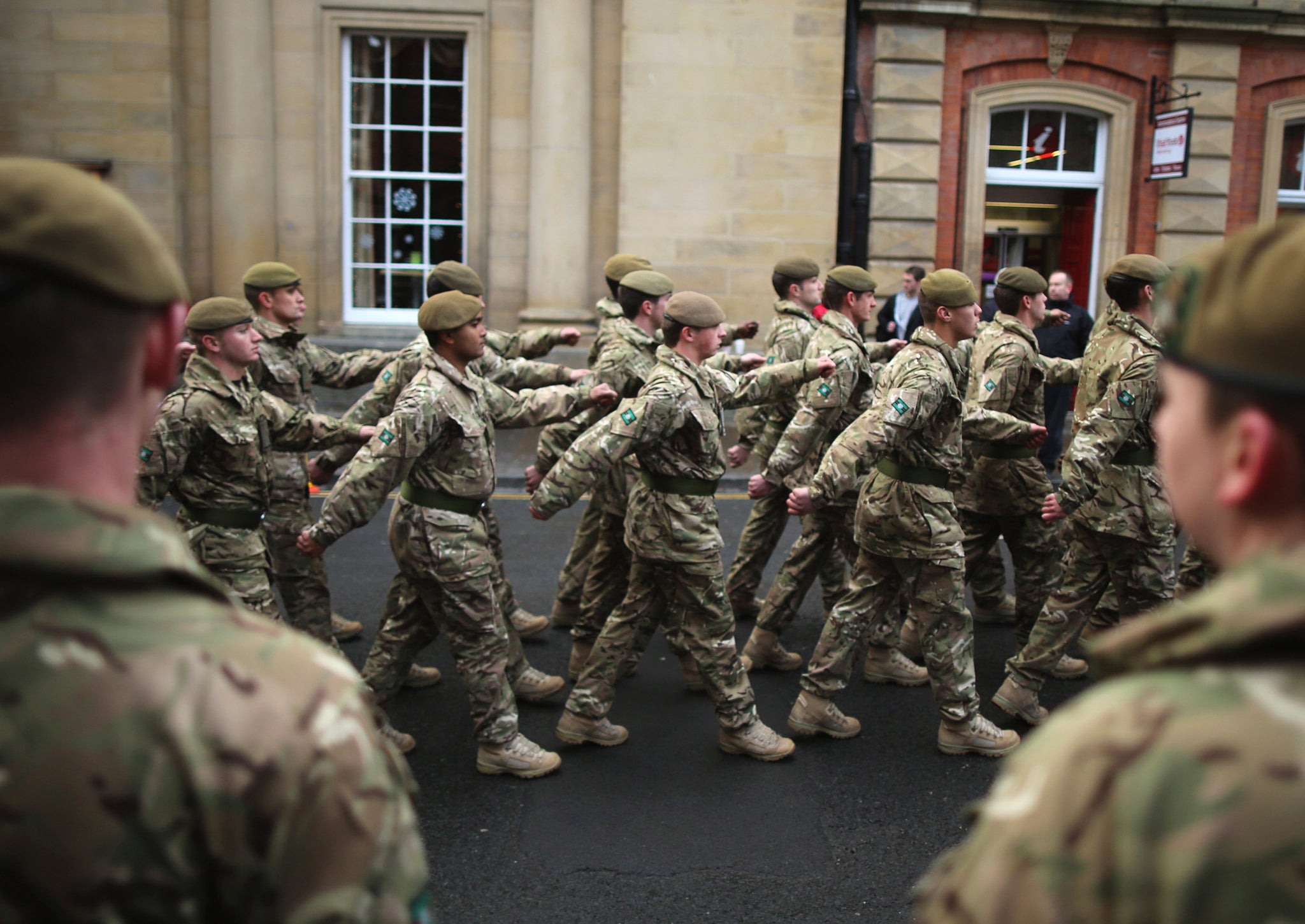We could save billions by cutting the military, but in a fragile world we need strong armed forces
It pays to be financially cautious, but we must be able to protect ourselves as a country


For a period, my job was to roam around Parliament, digging up stories, trying to find scandal.
It was a dream role, and there was no shortage of material. One of my best sources was the Public Accounts Committee, more specifically its reports and the studies sent to it by the National Audit Office (NAO).
I soon learned the auditors’ code. They would never say a project was outrageous or a total waste of public expenditure; their language was far more couched than that.
Ever since, I’ve kept an eye on their investigations and findings. Yesterday, the NAO produced a report, “Army 2020”, on the planned restructuring of the British Army. The idea is to cut back on regulars and boost the reservists.
When I read the spending watchdog’s conclusion that the plans carry “significant risks” to the Army’s operational capability; that the decision was taken without “appropriate testing of feasibility”; and the Ministry of Defence measures could “significantly affect the Army’s ability to achieve its objectives and value for money”, alarm bells do not just ring, they scream.
This is as tough as it gets from the NAO. In ever-so-polite Whitehall, protocol demands that the watchdog’s reports must be cleared with the department before they’re released. Why, I’ve never understood – it seems to me that it’s a recipe for something being written by committee, for clauses being taken out and a more watered-down, neutered version being inserted.
So, when I see that publication was delayed because of wrangling with the MoD, those screaming alarms are further amplified. The NAO wanted to say something else but was prevented from doing so. What? We should be told.
Under the plan, the regular Army will reduce from 102,000 in 2010 to 82,000 in 2018; while the reserves will go up from 15,000 to 30,000. This is intended to produce a £10.6bn saving.
The danger here is obvious. Putting a red line through troop numbers is a relatively instant process. It’s hard, and doubtless carries with it plenty of emotion, especially if a historic regiment is affected, but the act of trimming is straightforward.
Slower, and more difficult, potentially, is recruitment. It takes longer, and there’s no guarantee the right candidates will emerge.
When the two are linked, the danger is obvious. So it’s proved with the Army where recruiting reservists to replace the regulars is lagging behind. The result is a possible shortfall in the Army’s overall size and serious doubts about our military effectiveness.
Then, when I learn from the NAO that the hirings are in the hands of Capita, the outsourcing company, and its role is dependent upon the MoD supplying the right IT system, panic truly sets in. Sure enough, the Ministry failed to deliver the correct IT in March last year. Now the Army is having to incur increased operational costs of about £1m a month ahead of the new system’s launch.
All this, let us not forget, when the world continues to prove on a daily basis that it’s a very fragile place. To Syria was added Ukraine. Now, seemingly not long after we pull out, Iraq again raises a terrifying spectre. Does anyone seriously not think the same will occur in Afghanistan once Nato forces finally leave?
I’m not a militarist… but. Talk to any of our senior ex-Army officers and their doubts about what is occurring are clear. Again, like the NAO, they’re well-schooled in the art of speaking cautiously, but in conversation with one of them recently, his demeanour and the angle of his eyebrows said everything.
Ideally, I’d like to see our Army cut still further. But that could only occur if the world became safer, which it palpably is not, and if we ceased to carry out any global policing role, not fulfilling our obligations to Nato and ceasing to have influence. Arguably, that is not a bad stance to adopt, but it’s not the one our elected leaders have chosen.
They’re trying to have their cake and eat it, for Britain to go on flexing its international muscle, while not spending the money to achieve that strength. And, in saving the cash, they’ve embarked on a policy of cutting while at the same time recruiting cheaper, less-qualified personnel.
The NAO would never say it in these terms, but I will do so for them: this approach is mad and bad, and must stop.
Join our commenting forum
Join thought-provoking conversations, follow other Independent readers and see their replies
Comments
Bookmark popover
Removed from bookmarks